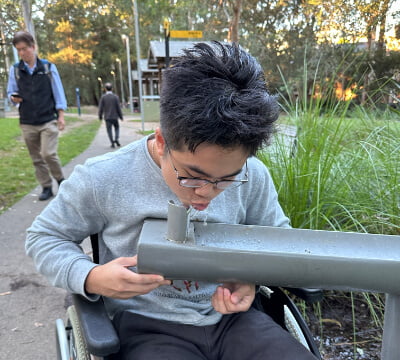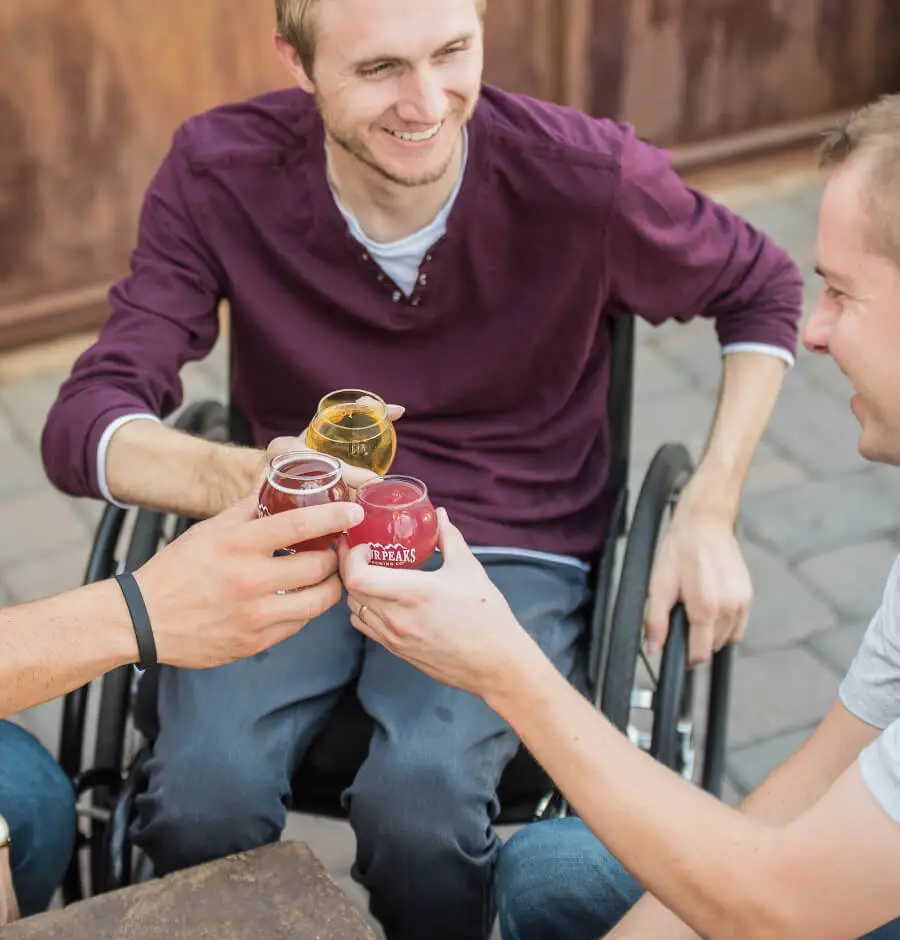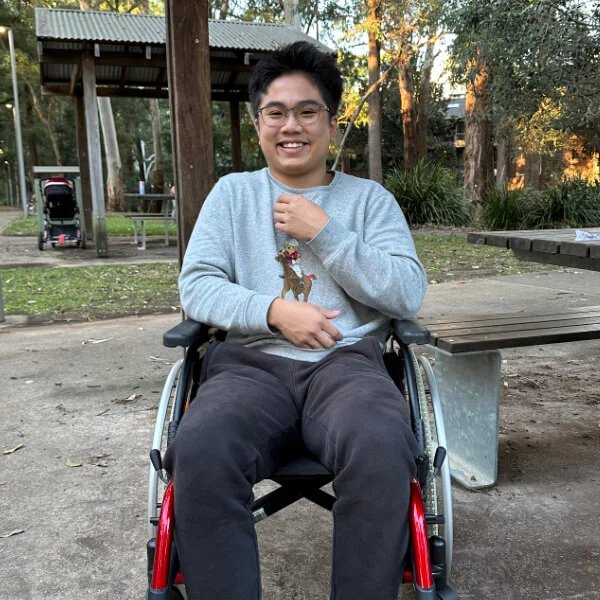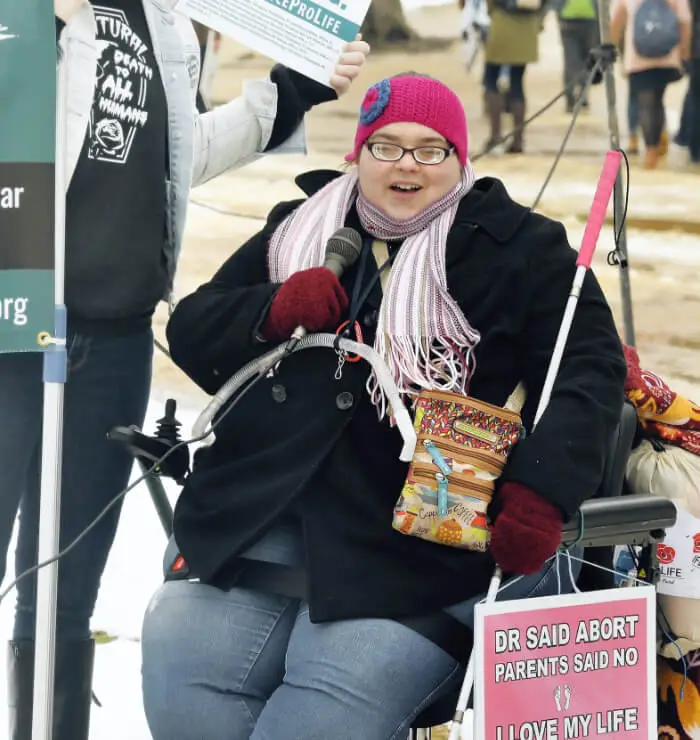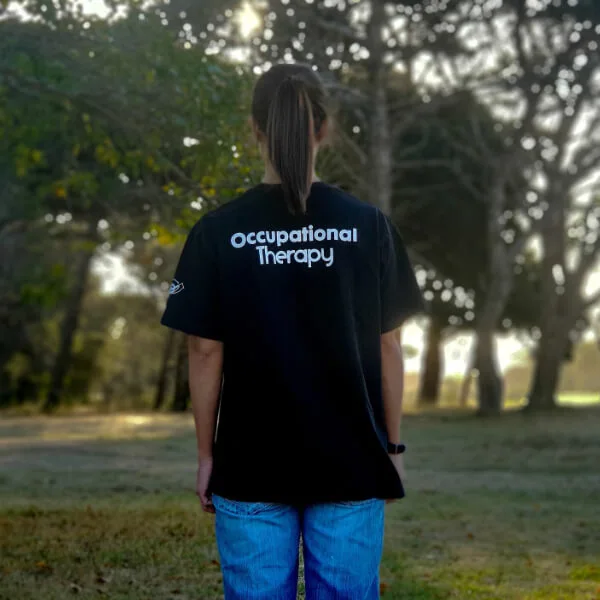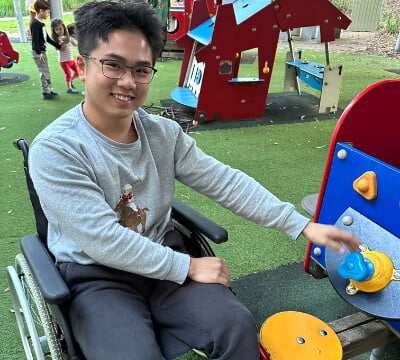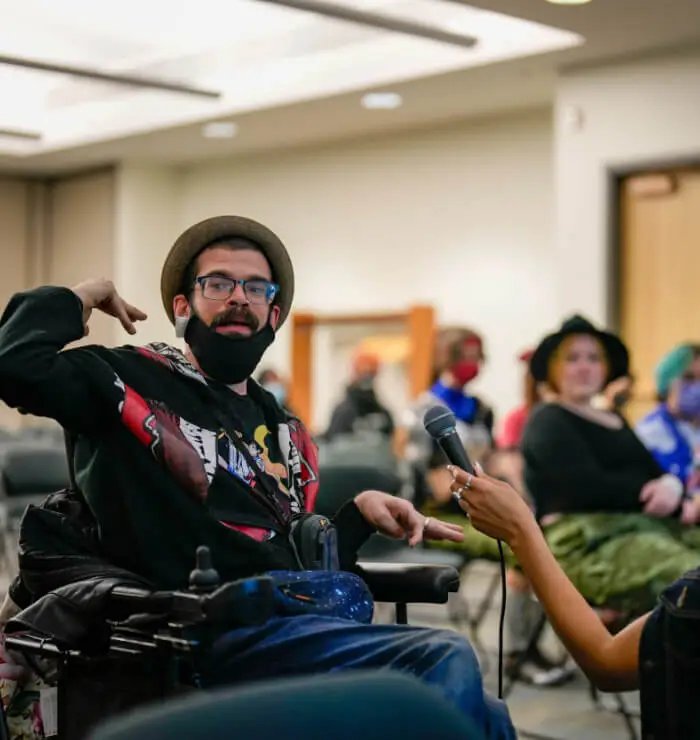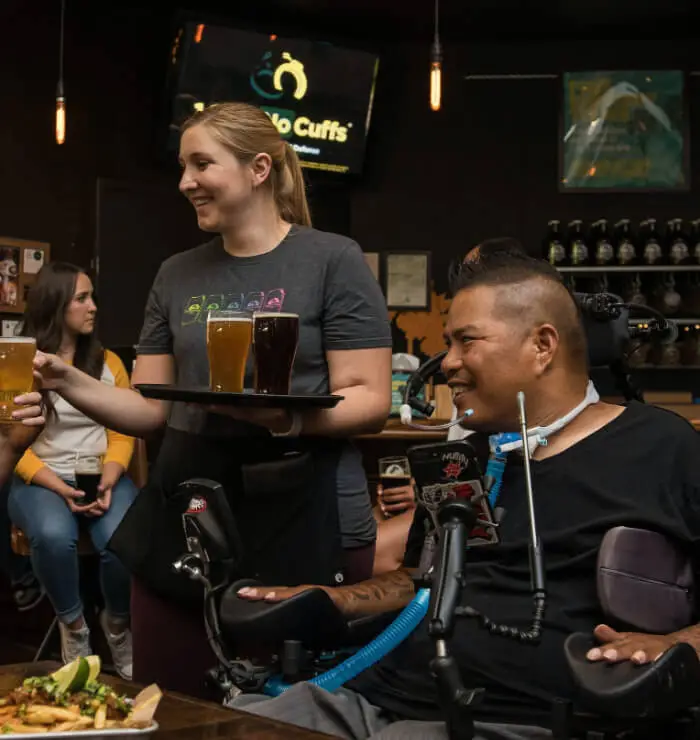Frequently Asked Questions
Hopefully these cover what you’re looking for, but if not feel free to ask us
How do I sign up for Enrichment Care's services?
Simply call us on 1300 543 123 or complete our online enquiry form. One of our Care Advisors will be in touch to understand your needs. We’ll then work with you to set up tailored services. Our aim is to make accessing support as simple and stress-free as possible.
How do you match clients with support workers?
We take a personalised approach to matching clients and support workers. In addition to considering your language and cultural background, we also look at factors like personality, interests and care needs to find the best possible fit.
What languages do your support workers speak?
Our diverse team includes support workers who speak a wide range of languages. We have carers from 30+ Minority Backgrounds. We’ll always do our best to match you with someone who speaks your preferred language.
Can I switch to Enrichment Care from my current provider?
Absolutely – we make changing providers easy. Give us a call, and we’ll assist you with the transition, including updating service agreements. We’ll match you with a support worker who meets your needs quickly. Your satisfaction with our services is our priority.
How do you match clients with culturally appropriate support workers?
Our diverse team includes support workers from a wide range of cultural backgrounds, many of whom are multilingual. When you reach out to us, we’ll take the time to understand your cultural needs and preferences and carefully select team members who are the best fit for you. We’ll also provide ongoing cultural competency training to ensure our team is always growing in their understanding and respect for diversity.
How do I know if I'm eligible for Core Support services?
Eligibility for our Core Support services is based on your individual needs and situation. Generally, if you are living with a disability and require assistance with daily living activities, you may be eligible for our services.
The best way to determine your eligibility is to reach out to us directly- we’re here to help you navigate the system and access the support you need.
How do I pay for NDIS cleaning services?
If cleaning services are included in your approved NDIS plan, you can use your funding to pay for our services. We will work with you to set up a service agreement and process payments according to your plan management option.
Can I change my cleaning schedule or tasks?
Absolutely. We understand that your needs may change over time. Simply contact us to discuss any adjustments to your cleaning plan, and we will do our best to accommodate your request.
What types of cleaning services are covered under NDIS Cleaning?
NDIS covers a wide range of services, including regular house cleaning, deep cleaning, and specialised cleaning (e.g., carpet, window). The specific services you can access will depend on your individual NDIS plan and goals. Our team can help you understand what services are available to you and develop a customised cleaning plan that meets your needs.
What is the difference between an Exercise Physiologist and a personal trainer?
Exercise Physiologists are more qualified health professionals who specialise in using exercise to prevent and manage chronic conditions and injuries. While personal trainers can help with general fitness, Exercise Physiologists have the expertise to work with individuals with specific health conditions and tailor exercise programs to their unique needs.
Do I need a referral from my GP to see an Exercise Physiologist?
You don’t necessarily need a referral to see an Exercise Physiologist. However, if you’re under a GP Management Plan or Team Care Arrangements, you may be able to access Medicare rebates for Exercise Physiology services with a referral from your GP. We can help you understand your options and guide you through the process.
What's the difference between occupational therapy and physiotherapy?
While both occupational therapy and physiotherapy aim to improve your physical function and well-being, they focus on different areas. Physiotherapy is primarily concerned with improving your movement, mobility, and managing pain. Occupational therapy, on the other hand, focuses on helping you perform and participate in the specific activities and roles that are meaningful to you, such as self-care, work, leisure, and social interaction.
Do I need a referral to see an occupational therapist?
No, you don’t need a referral to see an occupational therapist at Enrichment Care. You can contact us directly to book an appointment. However, if you’re accessing our services through your NDIS plan, you’ll need to have occupational therapy included in your approved plan.
What types of challenging behaviours can PBS address?
PBS can address a wide range of challenging behaviours, including aggression, self-injury, property destruction, disruptive or inappropriate behaviours, noncompliance, repetitive behaviours, and emotional dysregulation.
What makes Enrichment Care's approach to Positive Behaviour Support (PBS) unique?
At Enrichment Care, we take a person-centred, evidence-based approach to PBS. Our experienced professionals work closely with you and your support network to develop tailored strategies that align with your unique needs, goals, and cultural background.
What qualifications and experience does your team have?
All our support workers and Allied Health professionals are fully qualified and experienced in their fields. We have team members from a range of disciplines, including occupational therapy, speech pathology, physiotherapy and disability support.
Can I choose my own cleaner or cleaning team?
At Enrichment Care, we strive to match you with a cleaner who suits your preferences and requirements. While we assign cleaners based on their skills, experience, and availability, we also take your feedback into account. If you have any specific preferences or concerns, please let us know, and we’ll do our best to find the right fit for you.
What should I expect in my first consultation with an Exercise Physiologist?
During your initial consultation, your Exercise Physiologist will take the time to understand your health history, current condition, and personal goals. They may conduct assessments of your physical functioning, such as strength, flexibility, and cardiovascular fitness. Based on this information, they’ll work with you to develop a personalised exercise plan and discuss the next steps in your journey.
What should I wear to my physiotherapy sessions?
It’s best to wear comfortable, loose-fitting clothing that allows easy movement and access to the area being treated. For example, if you’re receiving treatment for a knee condition, wearing shorts or loose pants would be appropriate. Your physiotherapist can provide more specific guidance based on your treatment plan.
What should I expect during my first occupational therapy appointment?
During your initial consultation, your occupational therapist will spend time getting to know you, your medical history, your daily routines, and your goals. They may ask you to demonstrate certain activities or movements to assess your abilities and challenges. Based on this assessment, they’ll work with you to develop a personalized treatment plan. This is also a great opportunity for you to ask questions and express any concerns you may have. Our aim is to create a comfortable, supportive environment where we can work together to help you achieve your goals.
What can I expect during the Positive Behaviour Support (PBS) process with Enrichment Care?
Our Positive Behaviour Support (PBS) process begins with a comprehensive assessment to understand your needs, challenges, and goals. We then develop a personalised PBS plan, implement strategies, and provide ongoing support and monitoring to ensure the plan’s effectiveness. Throughout the process, we work closely with you and your support network to foster positive change.
Who will be working with me or my loved one during the Positive Behaviour Support (PBS) appointments?
At Enrichment Care, we have a multidisciplinary team of PBS professionals, including behaviour support practitioners, psychologists, occupational therapists, and speech pathologists. The specific team members working with you will depend on your unique needs and goals.
How can Enrichment Care's support workers help with skill-building?
Our support workers are here to help you learn and practice the daily living skills you need to feel confident and in control. Whether it’s developing strategies for managing your morning routine, learning new cooking techniques, or building your budgeting skills, we’ll work with you at your own pace to master the tasks that are important to you.
How can your Core Support services help me achieve my goals?
Our Core Support services are designed to assist you with daily tasks and empower you to achieve your personal goals. Whether your goals relate to independence, skill development, community participation, or anything else that’s important to you, we’re here to help you work towards them.
Our support workers will take the time to understand your aspirations and develop a support plan that aligns with your goals. We’ll work with you to identify any barriers and develop strategies to overcome them.
Through hands-on assistance, skill-building, and ongoing encouragement, we’ll support you every step of the way to turn your goals into reality. Our aim is to empower you to live your life to the fullest.
Can Exercise Physiology help with managing conditions like diabetes, cardiovascular disease, or obesity?
Yes, Exercise Physiology can play a significant role in managing and preventing chronic conditions such as diabetes, cardiovascular disease, and obesity. Our Exercise Physiologists will design a program tailored to your specific condition, helping you improve your health, manage your symptoms, and reduce your risk of complications.
Can physiotherapy help with chronic pain management?
Absolutely. Physiotherapy is a highly effective approach for managing chronic pain. Our physiotherapists use a combination of manual therapy techniques, exercise prescription, and education on self-management strategies to help you reduce pain, improve function, and enhance your overall quality of life. We work closely with you to develop a pain management plan that addresses your unique needs and goals.
Can I do physiotherapy exercises at home between sessions?
Yes! Home exercises are often a key part of physiotherapy treatment. Your physiotherapist will teach you exercises to do at home to support your progress and help you maintain the benefits of therapy. They’ll provide clear instructions and may give you written or visual guides to ensure you perform the exercises correctly and safely.
Will physiotherapy be painful?
While some physiotherapy techniques, such as stretching or exercising a stiff joint, may cause temporary discomfort, our physiotherapists always work within your pain tolerance. We aim to minimise discomfort while achieving therapeutic benefits. If you experience significant pain during or after treatment, let your physiotherapist know so they can adjust your plan.
Can occupational therapy help with mental health issues?
Yes, occupational therapy can play a significant role in supporting mental health and well-being. Our occupational therapists can help you develop coping strategies, build resilience, and engage in activities that promote mental wellness. We often work collaboratively with mental health professionals to provide comprehensive support.
Are cleaning products included in the service?
Yes, our cleaners bring all necessary cleaning equipment and products, which are eco-friendly and non-toxic. However, if you prefer specific products due to allergies or sensitivities, we can accommodate your needs.
How often can I receive NDIS Cleaning services?
The frequency of your NDIS Cleaning services will depend on your individual needs and the funding allocated in your NDIS plan. Some participants may require weekly cleaning, while others may need fortnightly or monthly services. We will work with you to assess your cleaning needs and develop a schedule that aligns with your goals and budget.
Can I access Exercise Physiology services through my NDIS plan?
Yes, if you’re an NDIS participant and have Exercise Physiology included in your approved plan, you can access our services. We can work with you to understand your funding, develop a service agreement, and start providing the support you need to achieve your physical health and well-being goals.
Still have a question in mind?
Dignity and Respect
Empathy-Driven
Continuous Improvement
Inclusive Practices
Reliable Support
Community Focussed

Let's connect
Every journey with us starts with a conversation. Let us get to know you, understand your needs, and show you how Enrichment Care can make a difference in your life.
You might look back on this day as the day when everything changed for the better.
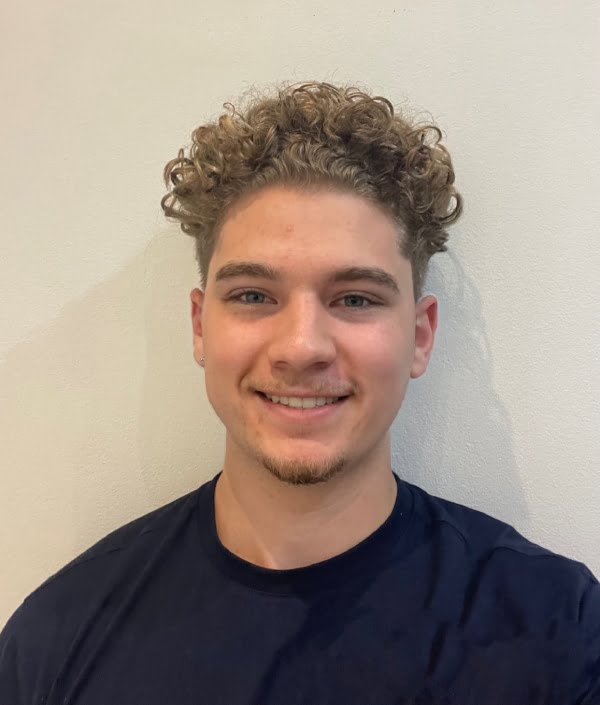 Ready for a Change? Let’s Talk
Ready for a Change? Let’s TalkBook a consultation
Call us today at 1300 543 123Leave your phone number and email id in the box below and our team will get in touch with you.
Get Free 30 Min
Consultation
Making a Difference Every Day
Our vibrant community and memorable events
